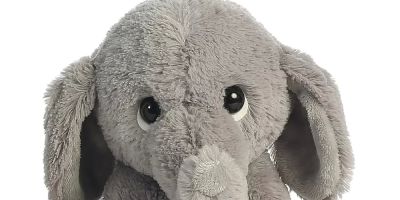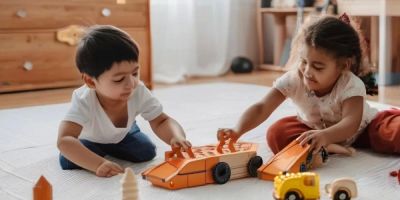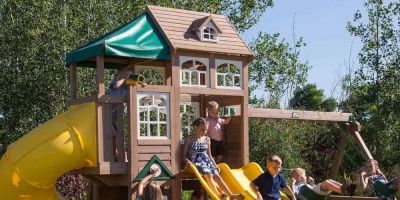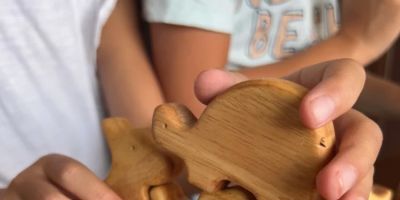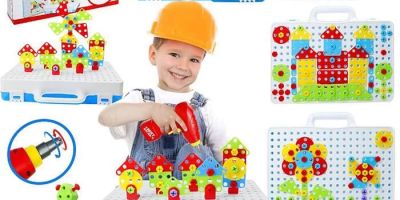- Importance of Play in Emotional Development
- How Toys Contribute to Emotional Growth
- Different Types of Toys and Their Impact
- Real-Life Stories and Examples
- Choosing Toys for Emotional Development
- Explore Toys at Knight Toys
Importance of Play in Emotional Development
Play is not just a fun activity for children—it’s a vital part of their emotional, social, and cognitive development. From the moment a child picks up a toy, they begin to engage with the world in ways that promote emotional growth. The role of toys in a child’s emotional development is far-reaching, as play allows children to express feelings, explore different scenarios, and understand the emotions of others. Through play, children develop key emotional skills such as empathy, self-regulation, and problem-solving abilities.
Play also provides a safe space for children to explore their emotions. Whether it’s through pretending, role-playing, or simply interacting with a favorite stuffed animal, children can begin to process their emotions and build coping mechanisms. As a result, play becomes a crucial tool for emotional expression and growth during the early stages of life.
How Toys Contribute to Emotional Growth
Toys serve as both tools for learning and as emotional outlets. They contribute to emotional growth in several key ways:
- Emotional Expression: Toys provide children with the opportunity to express their emotions, whether through creative play, mimicking social interactions, or using toys to represent feelings like joy, frustration, or fear. Dolls, action figures, and plush toys are particularly effective in allowing children to project their emotions onto the toys, helping them process their feelings in a safe and non-threatening way.
- Building Empathy: Through role-playing and pretend play, children are able to act out scenarios that help them understand and empathize with the emotions of others. For example, playing with dolls or action figures can allow children to see the world from another perspective, encouraging them to understand different emotional states and reactions.
- Self-Regulation Skills: Many toys, such as puzzles or building blocks, require children to follow instructions, overcome challenges, and learn to manage frustration. This process of working through difficulties helps children develop emotional self-regulation—an essential skill for managing their emotions in real-life situations.
Different Types of Toys and Their Impact
Not all toys contribute to emotional development in the same way. Here’s a breakdown of different types of toys and their specific benefits for emotional growth:
Stuffed Animals and Dolls
Stuffed animals and dolls are invaluable for emotional development. They provide comfort, security, and a means for children to practice nurturing behaviors. By caring for a stuffed animal or doll, children learn empathy and compassion, while also gaining a sense of responsibility and care. These toys often become a child’s trusted confidant, helping them navigate feelings of anxiety or sadness.
Building Blocks and Puzzles
Building blocks and puzzles promote emotional growth by teaching problem-solving skills. These toys encourage patience, persistence, and resilience as children work through challenges to create structures or solve puzzles. They also help children understand the importance of trial and error, teaching them that failure is part of the learning process.
Role-Playing Toys
Role-playing toys, like kitchen sets, doctor kits, and dress-up clothes, foster creativity and allow children to act out various social scenarios. These toys help children develop social and emotional skills by encouraging them to take on different roles and understand the emotions of others. Children who engage in role-playing can develop a sense of empathy and learn how to manage their own emotional responses in various situations.
Arts and Crafts Supplies
Arts and crafts toys allow children to express their emotions through creative outlets like drawing, painting, or sculpting. These activities provide an excellent opportunity for children to process and externalize their feelings. By creating art, children develop fine motor skills and learn how to communicate their emotions visually, fostering self-expression and emotional awareness.
Real-Life Stories and Examples
The impact of toys on a child’s emotional development can be seen in real-life examples. Take, for instance, a child who struggles with social anxiety. By playing with dolls or figurines, the child might recreate social situations, practicing how to interact with others in a safe and controlled environment. Over time, this type of play can help the child feel more confident in social situations.
Another example is a child dealing with the loss of a pet or loved one. A stuffed animal or comfort toy can serve as an emotional anchor, allowing the child to express their sadness, comfort themselves, and gradually come to terms with their grief. Many parents have shared stories of how their child’s stuffed animal helped them process difficult emotions, providing both comfort and a sense of control during challenging times.
Choosing Toys for Emotional Development
When selecting toys for emotional development, it’s important to consider the child’s individual needs and interests. Choose toys that encourage emotional expression, problem-solving, and social interactions. Here are a few tips for selecting the right toys:
- Age-Appropriateness: Ensure the toys are suitable for the child’s age and developmental stage. Younger children may benefit from toys that stimulate sensory exploration, while older children may need toys that encourage more complex play.
- Open-Ended Play: Choose toys that allow for creativity and imagination, such as building sets or art supplies. Open-ended play fosters emotional expression and encourages children to develop their own narratives and coping strategies.
- Interactive and Social Toys: Toys that promote interaction, such as board games, role-play sets, or toys that require collaboration, can help children develop social skills and emotional intelligence.
Explore Toys at Knight Toys
If you’re looking for high-quality toys to support your child’s emotional development, visit Knight Toys. We offer a wide range of toys designed to foster creativity, emotional growth, and social development. Whether you're looking for dolls, puzzles, arts and crafts sets, or role-playing toys, Knight Toys has something for every child.
Choosing the right toys can significantly impact your child’s emotional and social development. Browse our collection today and find the perfect tools for helping your child grow emotionally and learn about the world around them.

